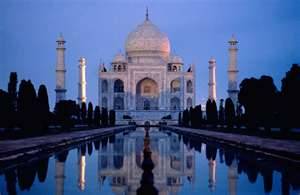THE ROSE AND THE TEMPLE
I wrote on Friday, that a person feeling out of tune with life should consider which world was the source of disappointment. Did it lay with the natural world or with the societies we build? My guess, and not a very bold one, is that our discontent lies with the latter. Imperfect creatures that we are, we inevitably create imperfect reflections of ourselves. That flaw in our creations might be the reason why we long for something greater. I was reminded of this truth in a book by Barbara G. Walker called “Man Made God.” Walker is a student of myths and in her book she recounts a story about Buddha. When a disciple asked for the gift of a revelation, the master replied that the man should study nature rather than human endeavors. (“Man Made God” pg.29.)
The story reminded me of a conversation I’d once had with a friend, now deceased, who was a watercolorist. She was a representational painter rather than an expressionist and sometimes wondered if too much realism was holding back her artistic development. I assured her it wasn’t. To capture the beauty in a rose or a daisy is a lifelong endeavor and an ever-changing one because the search for perfection is illusive. She smiled and nodded, glad that I had understood.
Still, I sometimes wonder if it is wrong to talk about the works of mankind as something apart from nature. Aren’t we subject to the same flow of evolution that guides the progress of a bird or a snail? If the temple is inferior to the rose, still it expresses the same longing for the spiritual.

(altiusdirectory.com)
I confess I’ve never been certain about how I should spend my life or what, if anything, is my purpose. But in my contemplations, I keep returning to a single point. I feel and because I feel, I know what others feel. Compassion is not unique to our species but I suspect we humans have the greatest capacity to make the most of it. If I had to guess, I’d say compassion expresses the spiritual aspect in humankind and that makes it and us comparable to the rose.